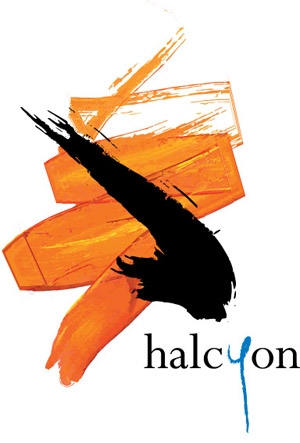Reviewed by Gwen Bennett for Loudmouth, February 2022
“Although well-known in some musical circles, Peter Dart is not a household name. This ear-opening CD clearly demonstrates that he should be.”
Peter Dart’s considerable background in music as performer, teacher and composer is outlined in his biographical essay entitled Life as a Series of Discoveries: born in 1953, studies with Meale, Sculthorpe and Banks led to early successes then, disillusioned with the current trends of serialism and minimalism, he turned to clarinet performance in concert and opera orchestras. Another life change saw him as head of music at Trinity Grammar School (Sydney), teaching, writing music and completing a PhD degree. Later, an about-turn to train for pastoral ministry. In all this time, his music had been “simmering”, but little evidence of his compositional skills had reached the wider public. Until now.
Triptych (2011), a brilliant work for two pianos, will surprise and delight the listener with its dynamism, imagination and creativity. Inspired by texts from Homer’s Iliad and Odyssey, the three movements are described as “panels” or “sound pictures”, as befits the visual nature of the title. The first of these, “Sirens”, begins softly then builds up, delicate filigrees alternating with agitated surges of sound, reminding us of those seductive water maidens who lure sailors to their doom. The music is vivid and invigorating. The second panel, “Circles”, depicts dancing girls on Achilles’ shield as described in the Iliad, energetic and exuberant in their almost perpetual movement with occasional rests from their activities; it’s quite jazzy in spots. The final panel is “Poseidon” who, in Greek mythology, is King of the Seas. A soft, murmuring bass underlies single notes, evoking an image of the sun’s rays piercing through the surface of the ocean’s gentle waves – a tranquil scene that gives way to ominous rumblings and tumultuous torrents of an underwater earthquake before peace returns. Rousing music, picturesque and imaginative, is delivered via breathtaking bravura performances by Daniel Herscovitch and Clemens Leske. This masterwork is a tour-de-force and a significant addition to the two-piano genre.
Traceries (2016) is a five-part suite for cello and piano. The first movement, “Prelude”, begins with a lengthy cello solo played by Geoffrey Gartner whose warm, luxurious tone is perfect for this beautiful, contemplative writing; the piano joins in with its own decorative commentary while the cello continues his song. Next is “Fugue” – less like the Bachian variety and more like a lighthearted interplay between cello and piano. “Tarantella” begins softly, then tears off in a wild virtuosic dance, exhilarating and at the same time somewhat unsettling, again with earthquake imagery inspired by a section in Louis de Bernières’ novel Captain Corelli’s Mandolin; it’s a terrific piece. This is followed by “Samba” with its unmistakable samba rhythms – a piece so enjoyable, so witty and full of fun it makes you smile.
The final, contrasting movement, “Lullaby” is an eloquent expression of the sorrow of death and the wonder of birth. Interpretations by Gartner and Herscovitch are impressive, matching their virtuosic skills to the demands of the music. This is a superb work for any cello/piano duo. Also, a possibility exists that any of the movements could be played separately, given the right context, for example, as an encore.
Sensitively programmed as a carefree contrast to the last-heard music of “Lullaby”, Birdtalk (2018) offers a pleasurable image of groups of little birds chirruping and chattering together in the trees as they gather for their dawn (or sunset) chorus. Scored for two marimbas and pre-recorded sounds, this joyous little gem of about 5 minutes duration is performed with sparkle and panache by Alison Pratt.
In the public arena for the first time on this CD are two song cycles, their planned concert performances having been disrupted by the pandemic. Four Short Songs (2017) for piano and voice are settings of texts by modernist American poet William Carlos Williams. These miniatures, each about one minute’s duration, are economical, exquisite and subtle. Jenny Duck-Chong’s elegant performances are exemplary. The song cycle of heaven and earth (2020) was commissioned especially for this recording project by Daniel Herscovitch. Based on texts by e. e. cummings, noted amongst other things for always using lower case letters, Dart’s selections express different sides of the poet’s work in four songs: “here’s a little mouse” is droll and whimsical, with philosophical undertones; “from spiraling ecstatically” is a reflection of the birth of Christ – His spiraling to earth, a momentous yet everyday miracle of birth inspired some lovely writing for the group; “i am a little church (Aeterna Christi munera)” intersperses two verses of the Latin text with cummings while a sweet, gentle spirituality pervades the hymn-like setting; “nobody loses all the time (Uncle Sol)” is jovial yet roguish and coloured by black humour.
The cycle is a fascinating mix of quirky and profound. The mellifluous voice of Jenny Duck-Chong (mezzo) combines admirably with the outstanding skills of Sally Walker (flute/piccolo), Brad Gill (percussion) and Daniel Herscovitch (piano).
Texts for the songs are included in the booklet – an advantage because it is rewarding to read and think about the poet’s words, with and without the music. The booklet also contains biographical information, program notes and recording details; all pieces on the CD are premier recordings and showcase the expertise of technical engineer David Kim-Boyle.
Daniel Herscovitch has been the driving force behind this exposition of Peter Dart’s work, the result of a strong conviction that it needs wide exposure. The range and depth of the music clearly demonstrates the composer’s confident mastery of his craft; his sure and sophisticated technical ability is evident, as well as a joy in life, a great sense of fun and much more. We can only hope that this late flowering produces further creativity in the years ahead.
Gwen Bennett
This review first appeared in Loudmouth, The Music Trust’s e-zine

